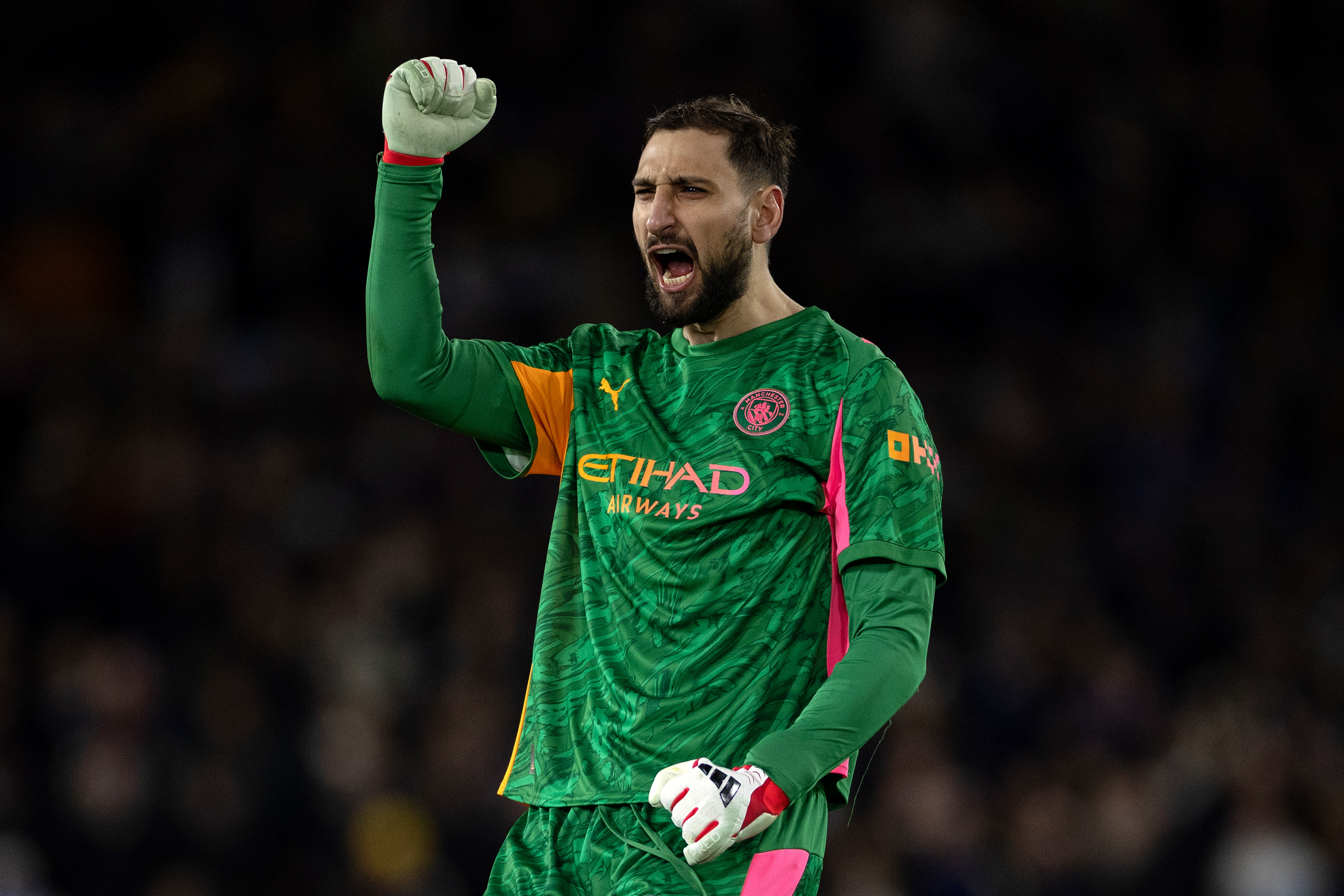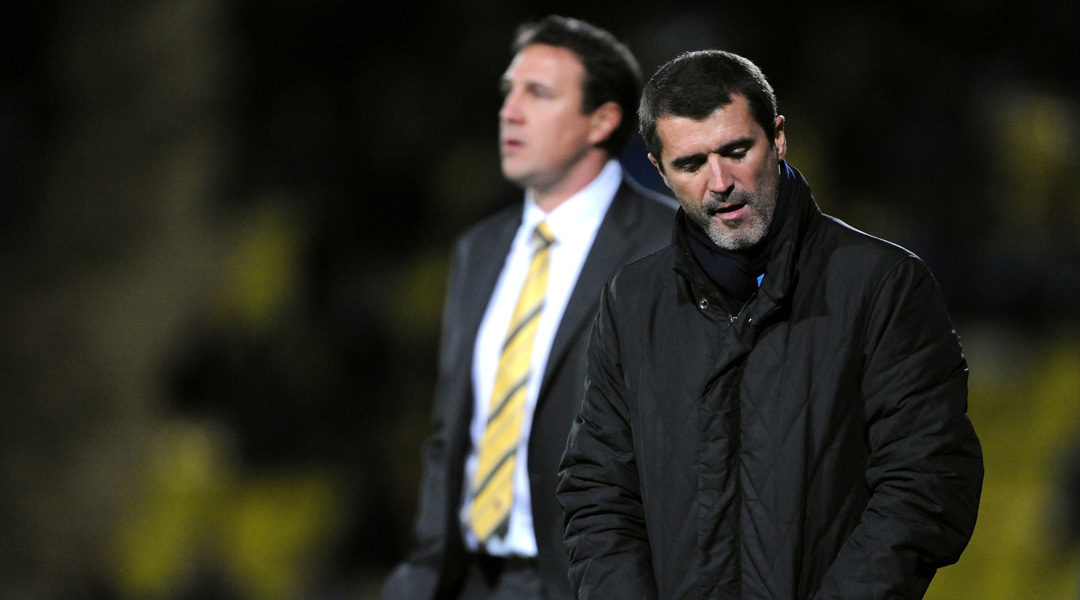
The best features, fun and footballing quizzes, straight to your inbox every week.
You are now subscribed
Your newsletter sign-up was successful
Want to add more newsletters?
Join the club
Get full access to premium articles, exclusive features and a growing list of member rewards.
"When I look at Roy Keane I often see myself," Sir Alex Ferguson once said of his former captain, presumably not being literal. "I equate to his passion, desire and striving for perfection. He cares. He's a born winner."
'Winner' is a word often used to described Keane. Throughout a career that saw the Corkonian lift seven Premier League titles and four FA Cups, he was famous for his full-blooded approach to the game. So much so, in fact, that the technical ability is often overlooked.
Keane was an imposing figure on the pitch, but he also was a superb reader of the game, possessed a brilliant range of passing, and had the canny knack of surging forward into the opposition box at exactly the right time - often in the biggest games. He wasn't just a defensive midfield thug. He wasn't Vinnie Jones. To focus solely on his more animalistic attributes is to do him a massive disservice.
Time to shut up?
But as time goes by, that's what seems to be happening, and it's a problem largely of his own making. Keane has become a caricature of himself - a renowned misery who seems to exist to do little more than pick at the weaknesses of others. It came as no surprise to learn his new book was largely a bile-ridden journal of who he hates and why (although, it has to be said, sometimes he's bang on the money) - it's like football's version of Richard Nixon's enemies list.
Some 49% of the fans polled this week by respected Manchester United fanzine United We Stand said they "wished he'd shut up" - and unsurprisingly, some of his 'victims' agree.
“It seems like he needs to criticise players, managers and directors to keep selling books as he is not able to do anything else in football,” Pablo Couñago - the Spanish striker who (occasionally) played for Keane at Ipswich - told Ipswich fan site TWTD earlier this week.
The best features, fun and footballing quizzes, straight to your inbox every week.
“It is a very sad ending for a person that was so big as a player," the one-time Portman Road cult hero added, having been labelled 'lazy' by his former boss.
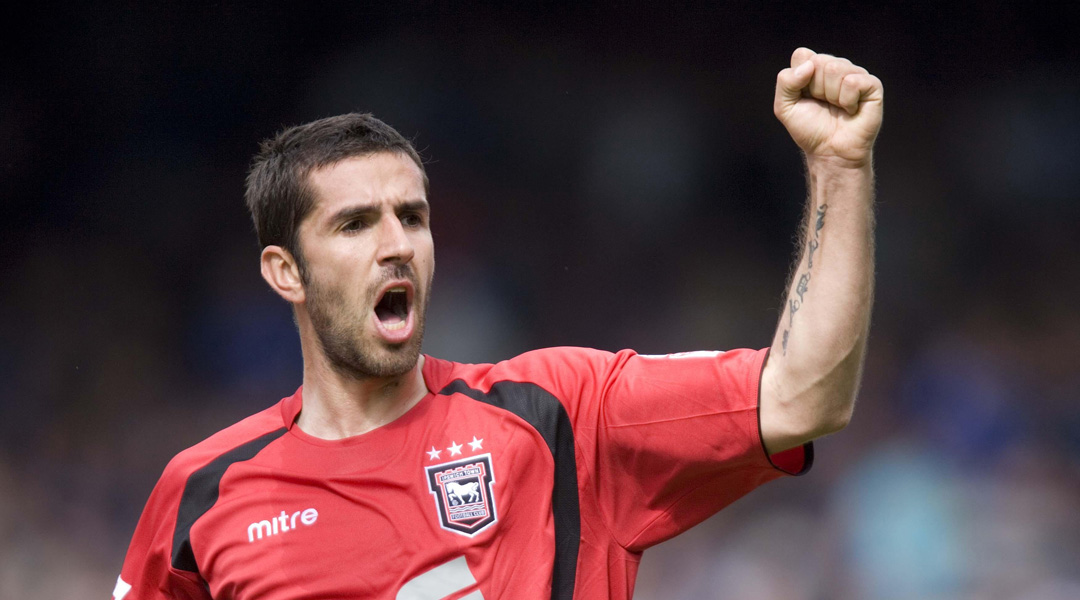
"I just hope he can find happiness in his life as, in my opinion, being that miserable must be very mentally draining. I could say lots of awful things about him, but I don’t feel right speaking about him, I feel sorry for him."
Keane's largely unheralded second autobiography is full of tales of little 'moral victories'. The former midfielder even tells of how he only returned his Manchester United 'company car' after the paperwork confirming his Old Trafford departure had been sorted, 12 weeks after he'd actually left the club.
"This was three months after the last meeting," Roy proudly explains. "So I got an extra three months out of it: I drove some f***ing miles in that car - every little victory is vital."
A fully-grown man speeding up and down a darkened M6, perhaps occasionally changing down to a gear too low just to take his manifest frustrations out on the engine, doesn't exactly scream 'winner'.
Looking back with regret
And that's the thing with Keane. As great a player as he was, and as 'driven' as he may be, many of the episodes for which he is most widely remembered actually suggest he's as much of a lovable loser as he is a flawed genius.
There's no questioning the fact Keane enjoyed a hugely successful career - after all, he captained United to Champions League glory in 1999. Except he kind of didn't. He missed the final through suspension, tainting arguably his greatest-ever performance - the semi-final win over Juventus.
Clearly both skipper and club will have been more than content with the way the whole thing worked out, but it's hard to imagine Keane doesn't look back with some regret.
Lifting the Premier League trophy twice every three seasons soon loses its thrill; Keane measured United's success on a continental scale and in his 12 years at the club they only made one Champions League final (and even then, not as champions), which he missed. In the first five full seasons after he upped sticks, they reached three finals. That will have surely stung, particularly given the nature of his departure.
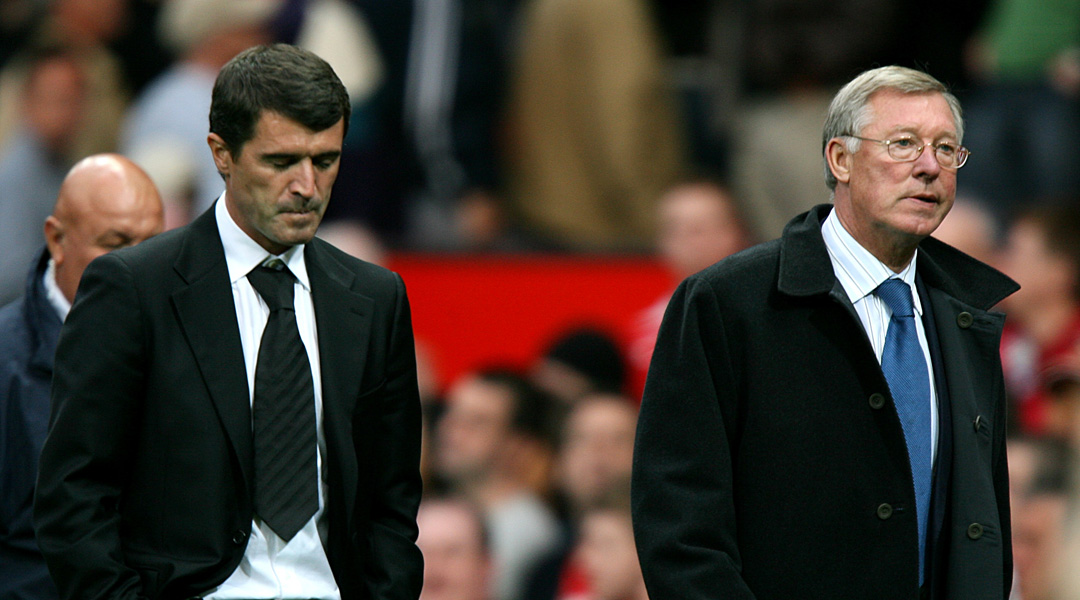
That explosive episode is unsurprisingly covered in some length in Keane's new book, with the Irishman explaining how he had demanded both Alex Ferguson and his assistant Carlos Queiroz up their game.
"We [the players] spoke about training downstairs and we're just on about mixing things up in training a bit," he claims to have told the Portuguese in 2005.
This caused Ferguson to step in, saying: "That's enough. I've had enough of all this," to which the mild-mannered Keane replied: "You as well gaffer. We need f***ing more from you. We need a bit more, gaffer. We're slipping behind other teams."
Keane's concern at United's apparent decline was justified - for starters, they'd just failed to win the title in successive seasons for the first time in the Premier League era. The Old Trafford club seemed to be falling further by Arsenal and Chelsea, and also looked at risk of being overtaken by Liverpool, who had just won their fifth European Cup.
Talking his way out of trouble
United were in malaise. The leveraged buy-out of the club by the Glazer family didn't look like leaving them on a level financial footing with Roman Abramovich's Chelsea, and the stars of the treble-winning side were starting to age (Ryan Giggs, for example, would only play for another nine years).
Yet, rather than 'digging in', and leading his club through a potentially turbulent period, Keane infamously slated his team-mates on the club's in-house television channel and talked his way out of Old Trafford.
With Keane gone, United were forced into a re-think. In the same January the Irishman joined Celtic, Nemanja Vidic and Patrice Evra moved to Manchester. Six months later, Michael Carrick followed in an £18m move from Spurs. That trio, along with youngsters Wayne Rooney and Cristiano Ronaldo, and previous Keane targets Rio Ferdinand and Edwin van der Sar, became the core of a side that won three successive Premier League titles from 2007 to 2009, and reached Champions League finals in 2008, 2009 and 2011.
Keane had perhaps been a catalyst for change, but he had missed out on all the trappings of the subsequent success. His mouth (and his age, it has to be said) meant he missed out on an even more golden period than the 1990s.
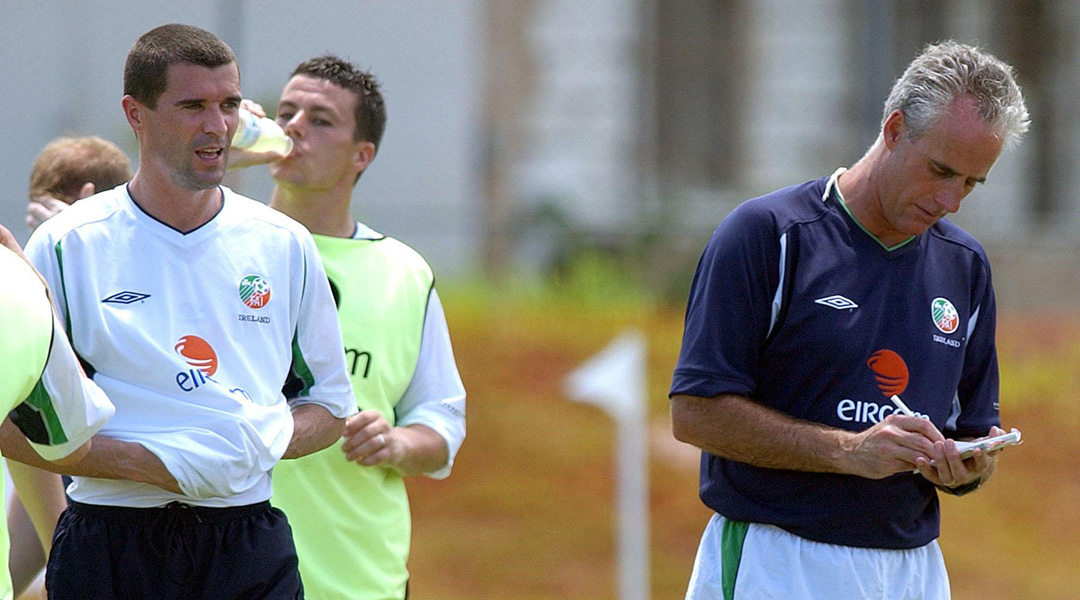
It was a similar story with Ireland, when he famously fell out with manager Mick McCarthy and the FAI over differences in opinion relating to the team's preparations for the 2002 World Cup. Keane once again raised reasonable concerns, but rather than putting that to one side and battling on for his country in their first major tournament in eight years, he made himself a martyr and again missed out on the big occasion.
Pride stopped him from doing what would've been best for both him and the team. Maintaining his image as a headstrong fellow seemed to be more important than on-field success. Ireland's performances in Japan and South Korea were arguably more impressive than those seen in the USA eight years previously. Had Keane stuck around, the men in green may have gone even further.
Unsurprisingly, Keane's hard-nosed bastardry was a key facet of the image he created of himself as a manager, and he was said to be particularly stringent when it came to punctuality - he even transfer listed Liam Miller due to the midfielder's poor timekeeping.
His approach at Sunderland - whom he led to promotion from the Championship in 2006/07 - was said to be so strict that the club's players celebrated wildly when he eventually left the club in 2008. One source 'close to the squad' told the Telegraph's Rob Stewart that Keane "ruled by fear". Yet, despite Black Cats defender George McCartney claiming the players were 'a bit disheartened' under Keane, the man himself insisted his departure from the Stadium of Light was purely a 'business decision'.
A lack of faith?
However, there are now signs Keane wasn't quite as confident in his own ability as he had been making out.
"We'd been beaten 3-0 by Luton, a shocking result, but at the press conference after the game I said that football results really didn't matter and I mentioned that Clive Clarke had had a heart attack (on loan at Leicester)," Keane writes in The Second Half. "I had the evil thought 'I'm glad he had it tonight', because it would deflect from our woeful performance."
Are these the words of a man with faith in his own ability? Would Keane the player have been so willing for an incident beyond the control of him or anyone at his club to mask a poor result or performance? Are these the words of a 'winner', or someone suffering a little insecurity?
As a player, Keane's achievements didn't match his own lofty expectations; his subsequent managerial career has been largely disappointing. Perhaps that's why he is still such an object of fascination among both the media and general public; the surly bear trapped in football's zoo. For all the admiration and adoration, deep down Roy Keane remains a deeply unsatisfied man, and that's unlikely to be soothed by playing second fiddle to Martin O'Neill, Paul Lambert and Adrian Chiles.
 Join The Club
Join The Club










